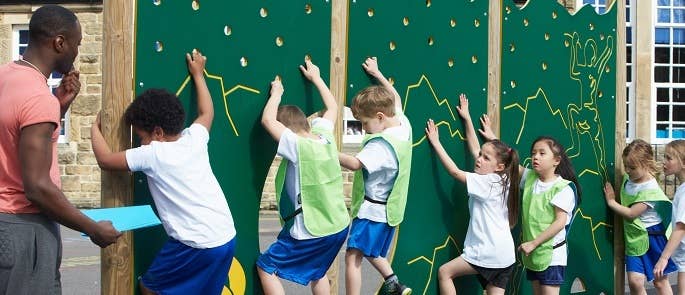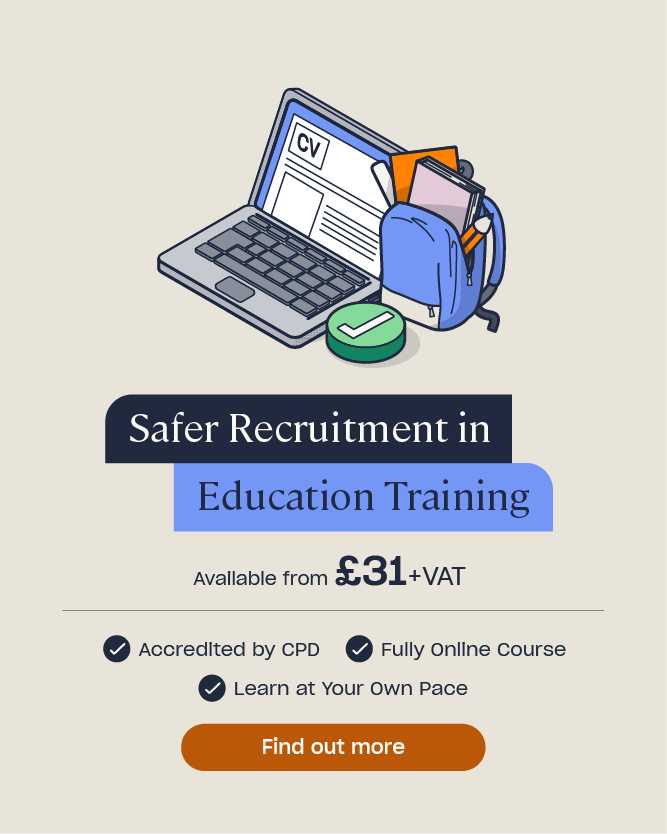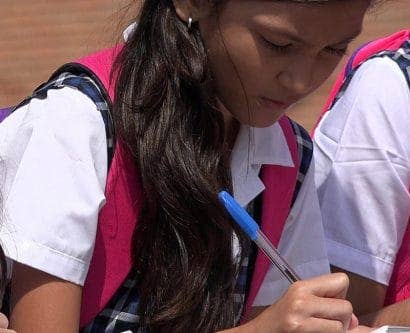Volunteer Roles in Schools: What Are the Requirements?
Volunteer roles can give you the opportunity to start out in the world of work, build up experience in a new field, or give to a cause that you feel passionate about – many parents even decide to volunteer at their child’s school to make a difference close to home.
You might be doing initial research into volunteering or may have already signed up and want to know what’s expected of you. In this article, we’ll discuss the importance of volunteering and the benefits it can have, the different types of roles, and the requirements they have (with a particular focus on volunteering in an education setting).

What Are Volunteer Roles?
A volunteer role is one where individuals freely offer their time, labour, and expertise – often carrying out work that is much needed but organisations can’t afford to pay for.
In schools, volunteer roles might include:
- Governors.
- Trustees.
- Reading with pupils.
- Sharing specialist skills with pupils (e.g. literacy, numeracy, an after-school club, or talking about your career).
- Helping on school trips.
- Helping with events or school productions.
- Volunteer classroom or school assistant.
- The PTA.
- Maintenance or improvement work around the school (e.g. painting or gardening).
Primary schools are particularly welcoming of volunteers.
Volunteers in education settings help to improve the learning experience, and often have an impact even after they have left. They aren’t accountable for the outcomes of the children they work with in the same way that teachers are, meaning that their roles can offer a way to work in education without the pressure of a permanent job.
Volunteers might be parents, college or university students, or other adults in the local area – you don’t need any experience working with children in order to become one.

Benefits of Volunteering in Schools
The benefits of being a volunteer in school can be wide-ranging, and include:
- Gaining experience – if you’re thinking of starting a career in education, the experience of working in a school before you commit to it can help you decide if the career path is right for you. You will have the opportunity to work with and observe experienced teachers, get to know the curriculum, and develop the necessary skills for more permanent roles. To future employers, your time as a volunteer will show your interest in the role, as well as giving you practical examples of situations to talk about in interviews. It may even be the case that roles come up at the school you’re volunteering in – and having an existing good reputation with them means that you could be their first choice.
- Improving outcomes – One of the reasons that volunteer roles are so popular is that they’re extremely rewarding. Volunteers feel as though they can make a difference, whether that’s in making lessons more interesting, helping a child learn to read, or making sure there are enough adults to accompany the class on an exciting trip. Schools are always appreciative of the work that volunteers do for them.
- Helping your own child – Some parents might volunteer at school when their child has just started in Reception, in order to help them have an easier transition. Others might see that an area of the school is lacking and have the skills to improve it – for example, being a governor allows you to get involved in the school’s strategic direction and have an impact on its long-term success.
- Improving your wellbeing – One of the NHS’ five ways to wellbeing is giving back to the community. Volunteering makes us feel good about ourselves and enriches our mental health.
Working with children and young people can be an enriching experience – their innovative perspectives on life can be both entertaining and inspiring.
If you’re considering taking on a volunteer role, our Coaching and Mentoring course is designed to give you the practical tools and techniques needed to kickstart your journey successfully.

What Are the Different Education Volunteer Opportunities?
The different education volunteer opportunities that are available can be roughly divided into roles that involve working directly with children, roles that aren’t wholly classroom-based, and roles that don’t involve any direct work with children.
Roles Working With Children
- Listening to children read. Reading is an extremely important skill for children to learn, but can be difficult to acquire. Any time and help that you can give could make a huge difference to children’s future achievements levels in school. Additionally, you might be asked to read to children – this can be of great benefit to their language and literacy development.
- Sharing your professional skills. For example, if you’re a doctor, you could talk about healthy living to give children an up-to-date, specialist perspective on an area of the curriculum.
- Helping on school trips. Schools need a certain number of adults to go with them on trips, but they can’t always spare the teaching staff. If you can make up the numbers, it means they have the opportunity to give children these enriching experiences that they may not otherwise be able to have.
- Taking on classroom assistant duties. To support the teacher, volunteer classroom assistants might check children’s planners, get them settled as they arrive in the morning, photocopy worksheets, design displays, answer questions in the lesson, work one-to-one or in small groups, and do story time. This gives the teacher more time to focus on teaching the lesson content – together, you can make an excellent team.
If you’re intending to volunteer in a school to keep an eye on your own child, bear in mind that, because children often behave differently around their parents, teachers may prefer you to work predominantly with other children instead – often even in another class.
Roles That Aren’t Wholly Classroom-Based
- After-school clubs. If you’ve got a special skill – like coding, art, languages, or photography – you could pass it on to others during an after-school club once a week.
- Coaching a sports team or running some PE sessions. Skills and experience in a certain sport could help to liven up children’s PE lessons at school, where they might otherwise be restricted by their teacher’s knowledge or preferences. However, this would be subject to the correct insurance being in place.
- Mentoring or providing advice. This might be in the form of careers advice, where you speak to a class about your experiences in a certain field and help those who are interested to get their applications right. You might also help students with themes such as social skills or emotional regulation.
- Summer camps or summer schools. You don’t need to be restricted to your local area – you might have the opportunity to help at a short summer school or camp in places further afield. You may even be offered free board and lodgings in exchange for your labour.
Additionally, you could access volunteer opportunities via programmes such as Coram Beanstalk and Code Club, which place you in schools rather than having to choose and apply to one yourself.
Roles Not Directly Working With Children
- Joining the PTA. PTAs (Parent Teacher Associations) are organisations that aim to make a school a better place to learn. They are responsible for raising funds to be spent on things that the school budget does not usually cover, such as extra equipment or events.
- Helping with events or school productions. Your role in these events might range from making costumes and props for the school play to helping with rehearsals for the Christmas concert. Volunteers behind the scenes are always appreciated!
- Being a governor or trustee. Governors and trustees support the strategic leadership of a school. This involves strategic planning, monitoring the progress of the school and holding the headteacher to account for it, and overseeing the use of finances. While governors sit on a board at a local authority school, trustees fulfil a similar role within academies. While certain skills might be especially useful to a governing board, the board needs to be diverse in order to function well, so don’t be afraid to volunteer if you don’t have a particular specialism in finance or business. Find out more about the responsibilities of a governor in our article here.
- Painting, gardening, or carrying out maintenance work. Opportunities might arise to help out with general maintenance of the school, or you might decide to get creative and make your own project. Volunteers have been known to take charge of creating a school nature reserve, making a friendship garden, planting vegetables, or ‘rewilding’ a section of the school.
Schools may advertise for volunteers with a specific role in mind, or leave it open to your own suggestions. They will often ask for expressions of interest in volunteering at the start of the school year, and allocate people to their positions later on, based on the person’s skills, experience, and availability.
Requirements for Volunteering in Schools
Before you volunteer in a school, it’s useful to know what is required of you. Below, we will discuss the different requirements, as well as the application process.
Qualifications
There are no required qualifications for volunteering in schools. However, some volunteers wish to take short-term courses like the WEA’s Preparing for Helping in Schools programme, which equips parents who want to volunteer in schools, to accredited courses like the Supporting Teaching and Learning in Schools Level 2 qualifications and apprenticeships. This is entirely optional and the benefits will depend on the role you intend to take on.
Skills
The skills that you may need to succeed in your volunteer role include:
- An understanding of and commitment to safeguarding children.
- Enthusiasm and a can-do attitude.
- A good work ethic.
- Friendliness.
- Passion for education or helping others.
- An understanding of the UK curriculum or school system.
- Excellent people skills (and perhaps experience working with children or young people).

Application Process
The school may advertise volunteer roles being available, or you may be able to informally approach a member of staff and ask if they are taking on volunteers. You may then be asked to fill in a short application form, containing your contact details and a brief explanation of why you want to volunteer and when you might be available to do so.
You may need a DBS check before you begin your role. This is a check of your criminal record, which will show details of all spent and unspent convictions, cautions, reprimands, and final warnings held on central police records. A DBS check is not required if you have already worked in a school, further education institution, or 16-19 academy in England (where you had regular contact with children) in the three months prior to beginning your role.
A DBS check is also not necessary if you are not going to be working in regulated activity. Regulated activity is where you carry out work for the purpose of the school and have contact with children (unsupervised). If you will always be supervised by a member of school staff, or your role does not involve contact with children, you do not need a DBS check (for example, if you help out once at a bake sale). However, the school can still request that you do one. They will make this decision based on risk assessments that they have carried out.

In addition to a DBS check, the school is required to ask you to provide two references – which must be people who know you in a professional capacity, such as previous employers, tutors, or teachers – and you may then be invited for interview to discuss:
- Your reasons for applying.
- Your motivation.
- Previous experience, qualifications, skills, or training (including previous voluntary work experience).
- Health considerations (both physical and mental).
- Expectations of roles and responsibilities.
- Child protection issues.
- Previous convictions (if relevant)
- References and their relationship to you.
- Your availability.
After this, the school is obliged to provide you with relevant training, which may include safeguarding training, as well as an induction programme. They should assign you a mentor, who you should contact whenever you have questions or concerns.
Need Training?
Our range of Safeguarding and Health and Safety Training Courses aim to provide you with the required knowledge to carry out your work whilst meeting training requirements. Take a look at our Course Library, where you’ll find everything from Introduction to Safeguarding Children to Paediatric First Aid.
Safer Recruitment in Education
The checks and references required of volunteers in education settings are compulsory so that the school is able to ensure that pupils are safe. They are part of a process known as safer recruitment in education. You can find out more about safer recruitment practices in our article: ‘What is Safer Recruitment?’.
Schools have a duty to safeguard children, and with regards to volunteers, they’ll want to ensure that you have the right motivations, attitudes, values, and behaviours to work with or near children. While some may see it as over-the-top for volunteers to have to submit an application form and go through a fixed process, this really is necessary to keep children safe from adults who may pose a threat.
Volunteering is a rewarding way to broaden your skillset, meet new people, and give back to your community. Whether you’re a parent volunteer in a school, a local looking to use your skills for good, or a student looking to gain experience, there are plenty of opportunities out there for you to enjoy.
Further Resources:
- What is Regulated Activity?
- What is Safer Recruitment?
- What are the Roles & Responsibilities of a School Governor?
- How to Become a Teaching Assistant
- Safer Recruitment in Education Training











